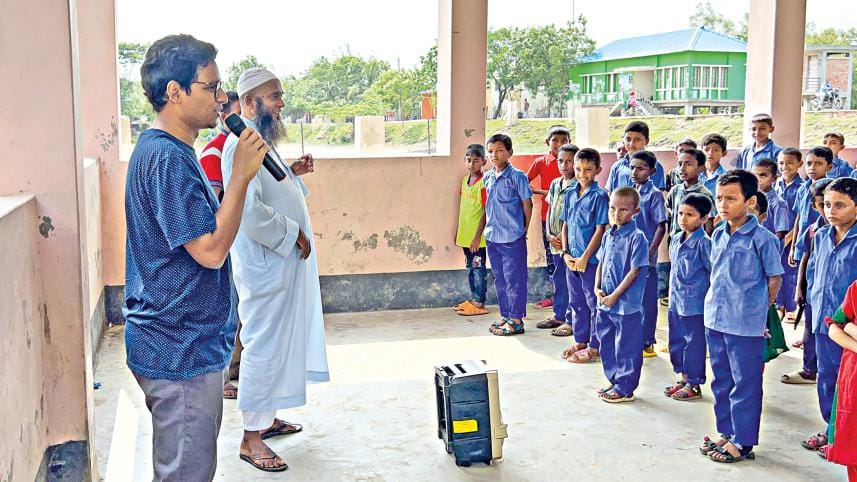Joler chobi matir chobi: Curating a transformative festival

A festival is more than just a cultural event—it is a powerful agent of change. Joler Chobi Matir Chobi, a pioneering travelling film festival, redefines the role of cinema by seamlessly integrating disaster management with community-driven development. Through compelling storytelling, it fosters awareness, resilience, and action in regions most vulnerable to climate change.
Targeting wetlands, coastal belts, and the Chittagong Hill Tracts—areas facing extreme environmental threats—the festival sparks critical conversations, amplifies local voices, and mobilises collective action. By blending cinema with scientific discourse and grassroots participation, it translates complex climate challenges into relatable narratives, encouraging deeper community engagement.
Like all effective development initiatives, this festival maximises impact by incorporating local knowledge and addressing the everyday struggles of vulnerable communities. Rooted in both global and local climate adaptation and disaster management frameworks, it aligns itself with regional challenges, exploring feasible solutions while emphasising cost-effectiveness.
I prioritise introspection over prescription when portraying affected communities. While filming in a remote coastal district, we found residents eager to participate. When we later screened the film, they deeply connected with its depiction. It's encouraging to see Hollywood embracing climate narratives, as exemplified by Don't Look Up. COP 30 in Brazil is set to highlight culture's role in climate action. Recently appointed to the UN Climate Change Secretariat's Film/TV Steering Committee, I aim to shape global disaster management policies.
Beyond being a model for climate education, the festival fosters meaningful collaboration and grassroots-driven approaches. Its replicable nature ensures that it can be adapted across diverse settings, nurturing trusted local leadership, strengthening institutional capacity, and enhancing disaster preparedness.
With support from the U.S. Department of State and local film networks, this festival is rapidly growing, extending its reach into new regions and amplifying its impact. Far from being an external intervention, it operates as a dynamic, participatory platform that brings together filmmakers, climate scientists, activists, and media partners. By engaging communities that are often hesitant to participate in development initiatives, the festival fosters a sense of ownership, facilitating long-term change and resilience-building in climate-affected regions.



 For all latest news, follow The Daily Star's Google News channel.
For all latest news, follow The Daily Star's Google News channel.
Comments